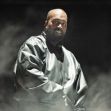The family of the late Isaac Hayes has filed a lawsuit against former President Donald Trump and his 2024 campaign, alleging unauthorized use of Hayes’ song “Hold On, I’m Coming.” Isaac Hayes, known for his profound influence on soul music, co-wrote “Hold On, I’m Coming” with David Porter. Over the last couple of years, it has become a staple at Trump’s rallies, prompting the family to initiate a lawsuit dated August 11, 2024.
Despite the 1966 track’s popularity, Hayes’ estate claims that Trump’s campaign used the song without permission from 2022 to 2024, infringing on the song's copyright on 134 occasions.
Political campaigns need authorization to use copyrighted music at a political rally because music is protected by copyright law. Copyright law grants the creators and owners of a musical work exclusive rights to control how their work is used. These rights include the ability to reproduce, distribute, perform, and publicly display their work.
Playing a song at a political rally constitutes a "public performance," which is one of the exclusive rights held by the copyright owner. To legally perform the song in a public setting, such as a political rally, the campaign must obtain permission from the copyright holder, usually through a license from a performance rights organization (PRO) like ASCAP, BMI, or SESAC.
Artists often have personal and political beliefs, and they may not want their music associated with certain political campaigns or messages. By obtaining authorization, campaigns can ensure they respect the artist's rights and wishes. Unauthorized use can lead to public disputes, where artists publicly object to the use of their music, which often creates negative publicity for the campaign.
Many artists are members of PROs that handle licensing for public performances of their music. Political campaigns typically need to secure a blanket license from these organizations, which allows them to legally play a wide range of songs during their events. However, even with a blanket license, specific use, especially in a political context, may still require direct approval from the copyright owner.
In some jurisdictions, artists have moral rights that protect the integrity of their work and prevent it from being used in ways that could harm their reputation or distort the meaning of their work. Although U.S. copyright law doesn't grant moral rights as broadly as some other countries, unauthorized use in a political setting could still raise issues if it affects the artist's reputation.
The lawsuit, filed by Hayes’ estate, mandates that Trump and his campaign immediately cease using the song. According to The Hollywood Reporter, they also seek $3 million in damages for unauthorized use, a public apology, and the removal of all content featuring the song. Additionally, the Hayes family is asking that Trump's campaign issue a formal statement affirming that the estate has not "authorized, endorsed, or permitted" the use of the track to publicly clarify there is no association with Trump.
This lawsuit adds to a growing list of legal disputes involving musicians and Donald Trump’s political campaigns. Notable artists, including Bruce Springsteen, The Beatles, and most recently Celine Dion, have previously condemned and threatened legal action over the unauthorized use of their music by Donald Trump and his campaign.
The Hayes family has indicated that if their orders are not met, they will pursue all necessary legal avenues, including “third-party takedown requests” and “federal litigation” to enforce their intellectual property rights.






